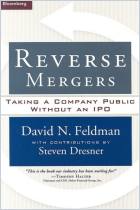
Going Public Overseas
How to Choose the Right Stock Exchange for Your Company
Read or listen offline
Recommendation
Chinese businesses made their debut on foreign stock exchanges in the 1990s – first, the state-owned enterprises and then Internet companies including Alibaba, Tencent, and Baidu. Now the Chinese businesses joining their ranks with initial public offerings (IPOs) are ”new economy” companies – innovative growth drivers emerging in the technology, transportation and consumer services sectors. The number of Chinese companies going public in the United States and in Hong Kong increased notably in 2017–2018. Following 74 IPOs in 2017, multiple high-profile IPOs as of August 2018 included iQiyi (China’s Netflix), video streaming platform Bilibili, smartphone maker Xiaomi Technologies,and online shopping platform Pinduoduo. Though many of these companies’ stocks have underperformed, Chinese companies continue to apply to list in Hong Kong and New York. In this article from finance media Zheng He Island, economist Guan Qingyou explains this trend and advises Chinese companies on how to choose between the Stock Exchange of Hong Kong, the New York Stock Exchange, and NASDAQ. getAbstract recommends Guan’s analysis to anyone who keeps an eye on capital markets.
Take-Aways
About the Author
Guan Qingyou is the chief economist at the Reality Institute of Advanced Finance. He also serves as the vice president of Minsheng Securities.


















Comment on this summary or Iniciar a Discussão